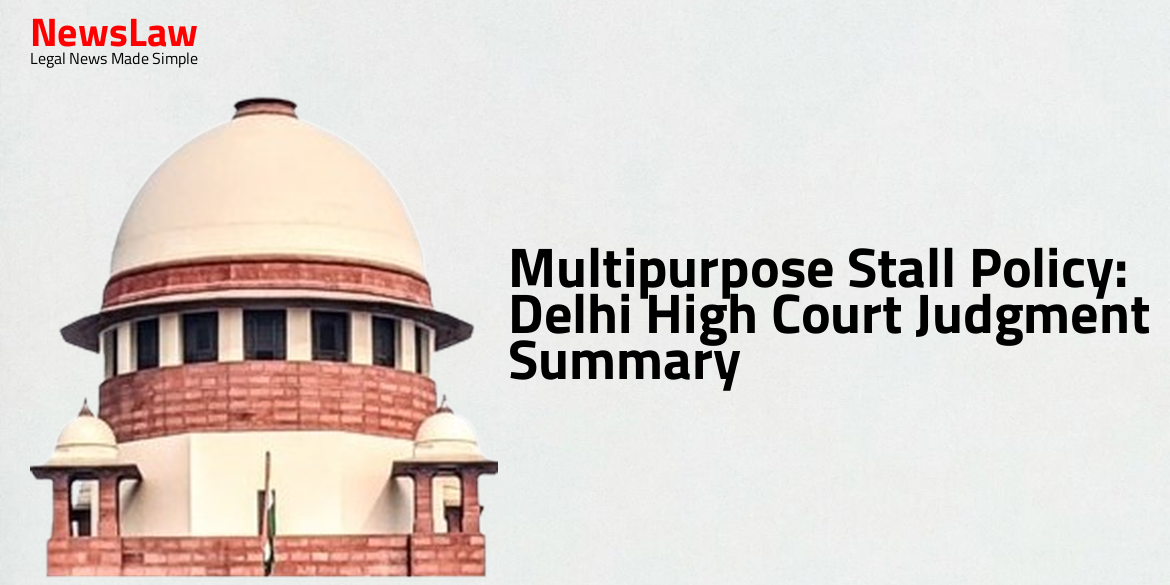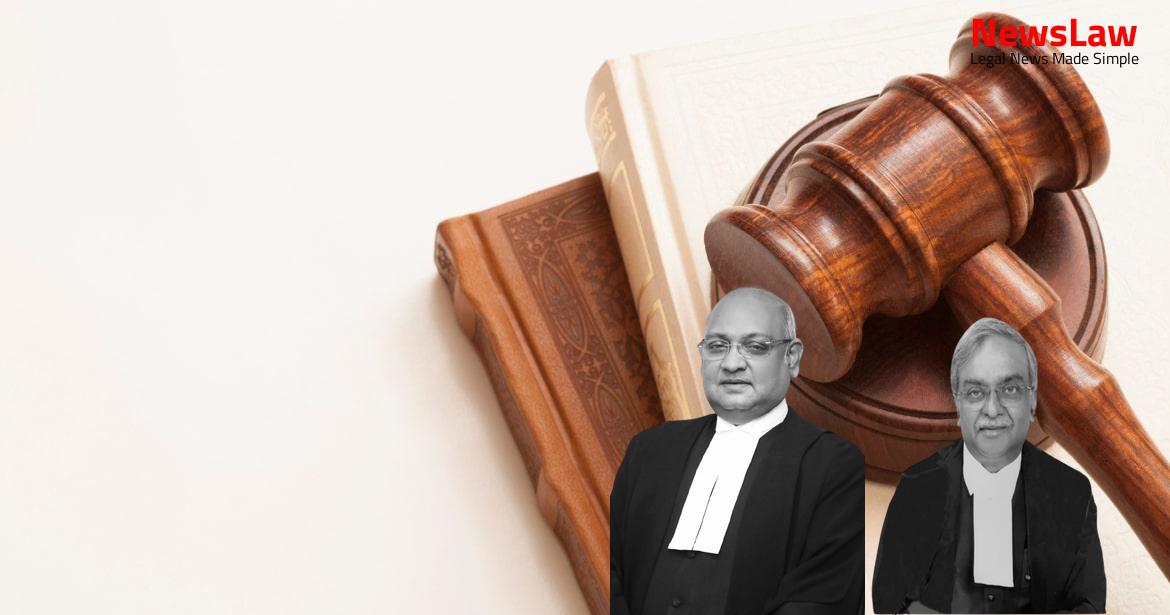Learn about the recent Supreme Court judgment on the exemption of excise duties and cess in the case concerning the Central Excise Act. The Court’s decision has significant implications for the interpretation of exemption notifications in cases like the one involving SRD Nutrients Private Limited and Bajaj Auto Limited. Stay informed on the latest legal developments in the field of excise duties and cess. #SupremeCourt #ExciseDuties #Cess #LegalJudgement
Facts
- On 4.7.2007, the Commissioner, Central Excise issued show cause notice withdrawing the benefit of exemption from payment of excise duty granted w.e.f. 9.9.2003
- Deputy Commissioner of Central Excise issued a show cause notice dated 2.1.2007 for repayment of NCCD as exemption was not permissible for units in Sikkim
- Appellant filed writ petitions challenging the above notices before the High Court
- High Court allowed the petitions and ordered to show cause to the communication dated 2.1.2007
- The exemption under Notification No.71/2003 exempted goods specified in the Central Excise Tariff Act, excluding tobacco and tobacco products
- Government decided to exempt 100% income tax and excise duty for ten years for promoting industrial development in North Eastern Region
- Appellant filed Writ Petition challenging the limitation of exemption under Notification No.71/2003 to specific Acts mentioned
- Education cess and secondary and higher education cess were introduced separately from excise duty and were not covered under exemption notifications
- Appellant claimed excise duty exemption for all levies similar to excise duty on goods manufactured in India
- Exemption was also extended to Sikkim under specific notifications dated 17.2.2003
- Subsequent amendments withdrew benefits like Cenvat Credit and exemption on Pan Masala
- Appellant filed claims for refund of additional excise duties and education cess under the exemption provisions
- Appeals have been filed challenging the High Court’s dismissal of writ petitions related to NCCD, education cess, and higher education cess
- The High Court held that the duties in question are not part of the exemption notification.
- This decision was reversed by the Supreme Court in Union of India v. Unicorn Industries.
- The decision was made in Civil Appeal No. 7432 of 2019 on 19.9.2019.
Also Read: Preservation of Fundamental Rights in Education
Analysis
- The term ‘duty’ under the Act is defined as the duty payable under Section 3 of the Act.
- Exemptions under Rule 8 of Central Excise Rules exempt various excisable goods from the duty of excise.
- The expression ‘duty of excise’ includes basic duty under the Central Excises and Salt Act, special duty of excise under Finance Acts, and other excise duties.
- Notifications must be interpreted based on the Central Excise Rules, 1944, as per Rule 2(v).
- Exemptions under notifications may not apply to all types of excise duties but only to those specified in the notification.
- Circulars issued by the Central Board of Excise and Customs are not legally binding for interpreting laws.
- Exemptions in notifications are specific and do not necessarily extend to all types of excise duties.
- Special duties of excise are distinct and not automatically exempted based on general exemptions.
- Court rulings emphasize that exemptions are applicable only to the specific duty mentioned in the notification.
- The Finance Acts of 2001, 2004, and 2007 impose additional duties and cess, which may not be covered under certain exemptions.
- Notification scope should be explicit, and any duty or cess not mentioned specifically may not be exempted.
- Provisions of the Central Excises and Salt Act, 1944, apply to exemptions, even if duties are imposed under different legislation.
- The court rulings establish that specific duties must be mentioned in the exemption notifications to be considered exempted.
- The decision in Modi Rubber Limited (supra) is a binding precedent that covers the issue and was rendered by a Co-ordinate Bench.
- Rule 8 of Central Excise Rules, 1944 authorizes the Central Government to grant exemptions from duty on excisable goods.
- Notifications granting exemptions under specific provisions do not cover other types of excise duties imposed under different Acts.
- A notification must be issued for providing exemptions to additional duties like education cess and secondary and higher education cess.
- Circulars based on interpretations by Customs Officers do not have the force of law and are not binding.
- Larger bench decisions are binding on smaller benches as per precedent.
- A Division Bench considered liability towards NCCD, education cess, and other duties for establishments exempted from central excise duty.
- In Modi Rubber Limited (supra), the issue was the scope of the term ‘duty of excise’ in relation to various levies under different Acts.
- Decisions in Modi Rubber and Rita Textiles Private Limited are binding
- SRD Nutrients Private Limited and Bajaj Auto Limited decisions are per incuriam
- Previous binding decisions of three-Judge Bench were not considered before the Division Bench decision
Also Read: Legal Analysis on Shareholding and Nomination Rights
Decision
- The appeals were dismissed with no hesitation
- The judgment and order of the High Court were upheld
- The decision to dismiss the appeals was affirmed
Also Read: Legal Analysis of Change in Law Compensation in Power Purchase Agreements
Case Title: M/S UNICORN INDUSTRIES Vs. UNION OF INDIA
Case Number: C.A. No.-009237-009237 / 2019



